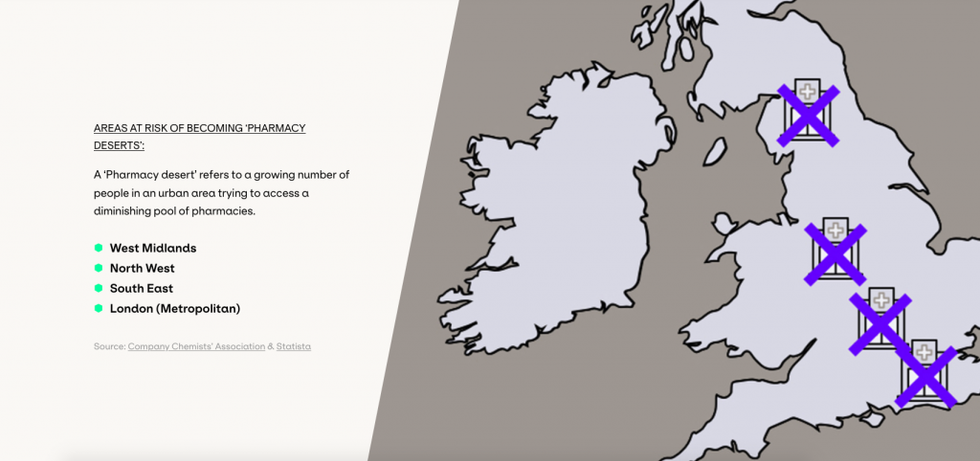Data crunched by an online pharmacy delivery company paints a concerning picture for the pharmacy sector in England.
Gophr’s ‘Prescription For Pressure’ initiative reveals a challenging time for the sector and is supported by separate analysis by the BBC showing that the number of pharmacies in England is at its lowest since 2010.
In addition, new powers being introduced for pharmacists to prescribe common prescription drugs and perform routine tests create an even greater workload for already overstretched pharmacists.
Gophr’s data reveals that:
• Each pharmacy in England serves an average of 6,078 people.
• In 2022, pharmacists dispensed 1.043 billion prescriptions, 26.3 million more than 2021.
• A single pharmacy in England dispensed 248 prescriptions a day on average in 2022.
Based on the most up-to-date statistics from the Office for National Statistics, NHS England and Statista, Gophr’s calculations show that pharmacists have around 116 seconds to dispense a prescription, which is less time than the 180 seconds it takes to make a Quarter Pounder at McDonald’s.
The numbers collected and analysed by Gophr, which supplies to pharmacy groups such as as Numark, point to the growth of ‘pharmacy deserts’, a term that refers to a growing number of people in an urban area trying to access a diminishing pool of pharmacies.
The South East and London are the biggest urban ‘pharmacy deserts’, with 5,882 and 5,195 people potentially accessing each pharmacy according to the latest regional data.
Other significant ‘pharmacy deserts’ are the West Midlands and North West, with 4,619 and 4,227 people per pharmacy.

Gophr’s data crunching indicates that this could just be the beginning of pharmacy struggles.
More closures are planned over the next year than in the past three years combined including the 436 planned closures as pharmacy chains such as Boots and LloydsPharmacy restructure.
Demand for pharmacy services is also being driven by an ageing population.
Across England and Wales, people aged 65 and over now account for nearly 20% (18.6%) of the population.
Kurtis Dodge, senior commercial and digital proposition manager at Numark, said: “There’s no denying that the pharmacy sector is facing significant challenges, but also that demand for pharmacy services is ever increasing.
“Delivery services can offer pharmacies the opportunity to branch out to those customers who may fall into one of the ‘pharmacy deserts’. It has the potential to relieve some of the pressures from pharmacists with structured delivery routines for regular repeat prescription patients.”
Graham Smith, strategic account director at Gophr, stated: “We know from our experience in the sector that changing working hours and pharmacy closures are causing considerable strain - both on pharmacists and patients. But it was only after digging into the numbers, and speaking to our clients, that the true challenge became clear.
“The fact that pharmacists are serving more customers at a speed that is not sustainable is concerning. So the sector is right to be thinking differently about how it serves patients.”











